How much does it cost to build a house in Poland?
How much does it cost to build a house in Poland as a UK expat? Find out in our essential guide, covering everything you need to know.
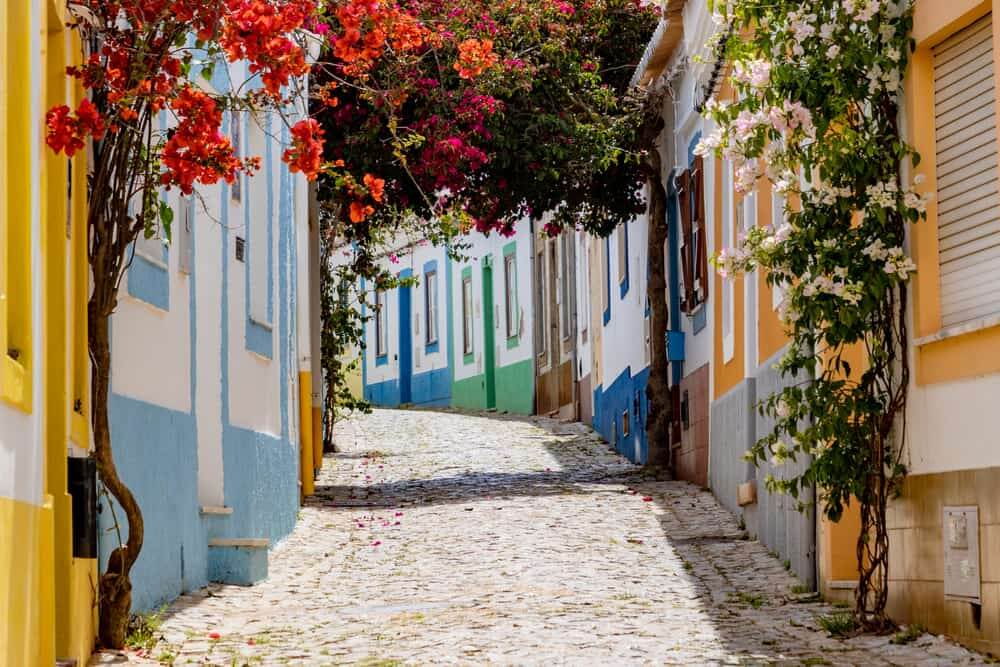
With an attractive climate, beautiful coast and friendly communities, Portugal is a top destination for expats looking to relocate, either for work or retirement.
If you're planning on moving to Portugal, you'll need to find a place to live. Or perhaps you’re looking for a holiday home or investment property.
Whatever your plans, then you’ll need to know a bit about buying property in Portugal as a foreigner and how the process typically works.
In this guide, we’ll cover everything you need to know. This includes info on mortgages, fees and taxes, the latest Portuguese property prices and pitfalls to avoid.
If you’re looking for ways to save money on currency exchange when buying property in Portugal, check out the money services provider Wise. You can send large transfers with Wise for low fees* and great exchange rates - making it ideal if you’re sending a secure international transfer.
Before you start your house hunt, it can be useful to know a little about how the process of buying property works in Portugal.
Here’s a quick overview of the steps involved:¹
Before you do anything, it’s crucial to get your finances in order. You need to set your budget, get a mortgage offer in place and define exactly what you’re looking for.
Now it’s time to start searching for your dream home. You can use online property portals and/or local estate agents to find properties. We’ll run through some tips later on how and where to start your search.
If you’ve found somewhere you like, move quickly before someone else snaps it up. Arrange a viewing as soon as you can, and start researching the area in the meantime.
A recent legislation change in Portugal made it easier for sellers to list their property on the market, but also brought considerable changes from the buyers’ perspective.
"A law enacted in January 2024 implies that simplified urban planning licences have "simplified" the procedures involved in purchasing and selling real estate in Portugal. To be more precise, you don’t need to show the Licença de Utilização (Habitation License) and the Ficha Técnica da Habitação (FTH) when signing the Portuguese reservation contract CPCV. This is a good step since it makes it possible for more properties to be listed on the real estate market and it makes the process of buying a home easier. Nonetheless, you should always insist on seeing these documents as the buyer. As a foreigner, it is in your best interest to make sure the property you are buying is in good condition, and these two documents verify that."
– Pearls of Portugal, a leading buyer's agent in Portugal, will help you with your purchase in Portugal and clarify all the questions that you have concerning the Licença de Utilização
Contrary to how it works in the UK, in Portugal it's common practice to hire a surveyor to check the property for structural or other issues before submitting an offer. If the survey flags anything up, you may be able to negotiate on price when putting in your offer.
If the survey comes out clean, you can make a competitive offer to the real estate agent or directly to the seller. You can do it over the phone or in person, but it may be best to do it over email so that you have something in writing. Negotiation is common, so there may be a bit of back and forth before a final purchase price is agreed on.
If your offer is accepted, the next step is for both parties to sign the purchase proposal contract. In Portugal, this is known as the contrato-promessa compra e venda. It’s provided by the estate agent, and once signed you’ll have to pay a compensation fee if you back out of the deal.
At this stage, you might want to contact your mortgage provider to finalise the financing for your purchase.
After signing the agreement, you will also need to arrange a transfer to pay your deposit. This is usually 10%. If you back out of the purchase, you’ll lose the deposit. If the seller pulls out, they’ll have to pay you back twice the deposit amount in compensation.
This is the final crucial piece of paperwork, and it must be formally signed in the presence of a notary or solicitor. You’ll need a translator to hand if you’re not a fluent Portuguese speaker. Once you’ve signed the property deed, the property will be officially registered in your name.
The final stage before the purchase is complete is the transfer of funds. You’ll need to pay the remaining balance, plus any fees and taxes.
And then all that’s left is for you to pick up the keys to your new home.
| 💡 Read more: The best UK banks for sending money abroad |
|---|
Portuguese banks and providers do offer mortgage loans to foreigners, but the conditions, requirements and rates may differ compared to how it works for locals.
For example, you may only be able to borrow a maximum of 60-70% of the property value (compared to the 80-90% mortgages available for Portuguese citizens). You’ll also need to show that your monthly repayments don’t exceed more than 30-35% of your income.²
You may be able to get a mortgage as a non-resident, but it’s generally easier if you have residency in Portugal.
The requirements for application will vary between banks, but generally you’ll need to provide:²
It’s not absolutely essential to have a Portuguese bank account or international account in order to get a mortgage, but it might make the process easier.
Alongside the property price, you also need to budget for the fees and taxes which may apply to your Portuguese property purchase.
Here are the essential costs you need to know about:¹
You’ll also need to factor in legal fees, and the cost of commissioning a building survey.
All in all, you’re looking at an extra 10% of the purchase price in fees and taxes.
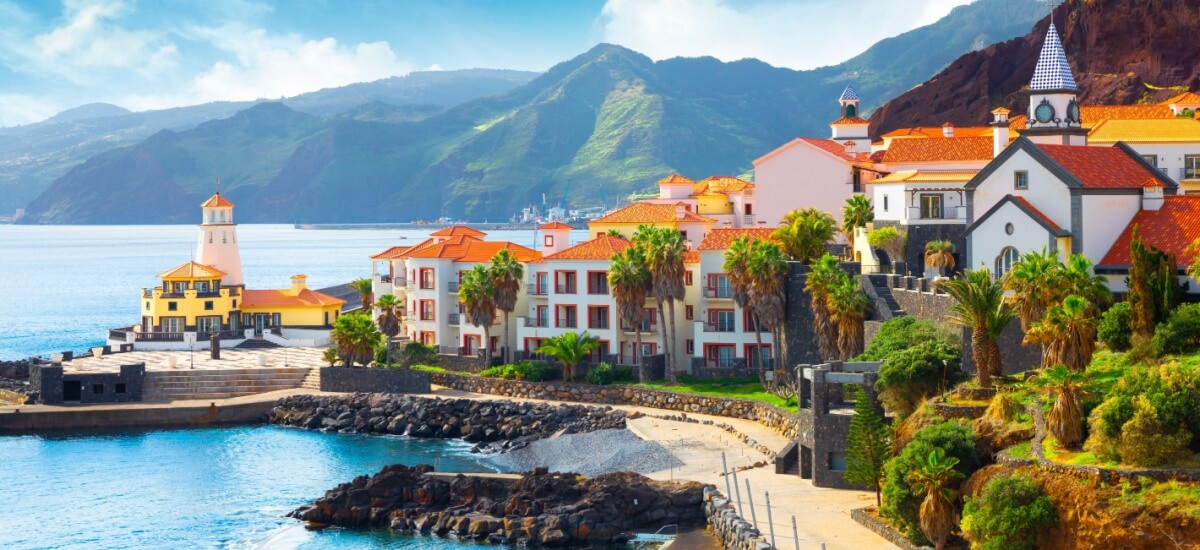
Portugal’s property market has experienced considerable growth over the last few years.
House prices have been rising continually since about 2017, with the average price rising over 7% during the year to April 2024.³
The biggest rises were recorded in Madeira (up by 16.8%) and the Azores Islands (19.7%), while prices in the capital Lisbon increased by a modest 4.9% in the year to April 2024.³
This is all despite a fall in demand and the country’s slowing economy.
Yes, foreigners can buy property in Portugal, as long as they have the right visa and a local tax number (Número de Identificação Fiscal or NIF). You should find the process much the same as a local, although you may not be able to borrow as much from a Portuguese bank.
Portugal has a Golden Visa scheme, which is a residency by investment program, but it doesn’t apply on property purchases anymore.
It used to be the case that you could invest in property and qualify for residency, but a 2024 change has meant that this is no longer the case. The scheme no longer accepts real estate purchases as qualifying investment options.⁴
This means you’ll need to choose another qualifying investment to be eligible for the Golden Visa scheme.
Or you’ll need to apply for residency in Portugal as a non-EU national through one of these routes - employment, starting a business, studying or having family ties in Portugal.
So, how much money do you need to spend to buy your dream home in Portugal?
Property prices in Portugal are around 41% to 45% cheaper per square metre than in the UK, depending on whether you buy in or outside a city centre.⁵
To narrow it down a little further, here’s a guide to what you can expect to pay per square metre in a couple of Portugal’s major cities:⁶
| City | Average apartment price per sq.m - city centre | Average apartment price per sq.m - outside city |
|---|---|---|
| Lisbon | €5,979 | €3,212 |
| Porto | €3,427 | €2,506 |
Remember though that property prices will also vary depending on the type of property, and the exact part of Portugal you’re buying in.
Another thing to note when figuring out the price for property in Portugal is that international transfers could get expensive, especially if the provider adds a margin to the exchange rate to convert your pounds. Consider checking out Wise to securely handle your large transfers with mid-market exchange rates and low, transparent fees*.
If you’re property hunting on a budget, some areas to check out include:
These are all relatively affordable compared to major cities like Lisbon, where city centre properties come at a premium.
And speaking more generally, you’re likely to find cheaper property if you look outside of city centres and popular urban areas.
The two main routes to find property to buy in Portugal are local real estate agencies and online property websites.
It isn’t necessary to use a real estate agent to find a property to buy overseas. But it can be helpful, especially if you’re moving to Portugal from the UK and are unfamiliar with the local property market.
In Portugal, estate agents (agência imobiliária) need to be registered with the government and display a licence number.
You can also search for property in Portugal online, from the comfort of your current home in the UK.
Here are some popular Portugal real estate websites to check out:
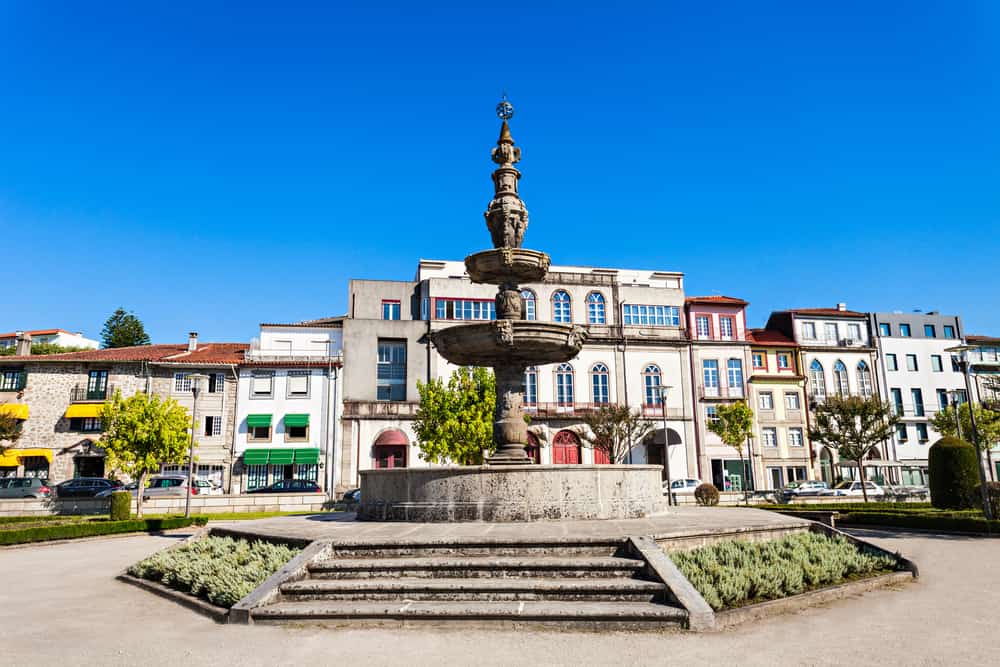
Like much of Europe, Portugal is generally considered to be a safe place to buy property. But there are some pitfalls and risks to look out for.
Firstly, there’s the language barrier. If you’re not a fluent Portuguese speaker, you might find it extra difficult to get to grips with the intricacies and complexities of the local property market. This is why it’s important to seek assistance from an experienced, multilingual solicitor and/or real estate agent.
Here are some other important things to be aware of:⁷
And of course, you should take all possible measures to protect yourself from scams and fraudsters.
Your perfect property will be the one that closest fits your search criteria. The most important factors will be location, the type of home and of course, how much you can afford to spend.
If you’re not already living there, it’s worth making a trip to the specific town or city in Portugal you’re interested in. You’ll want to check out the local area and view properties, making sure to pay attention to local transport links and amenities.
It’s a good idea to do as much research as possible before committing to purchase a property.
A crucial step is checking the Property Registration Certificate (Certidão de Teor) and land registry information to check the legal status of the property, as well as if any debts, charges, building conditions or other restrictions are registered against it.
You’ll also want to commission a building survey or inspection, which will flag up any major issues and give you a better idea of what you’re buying.
Before you can get the keys to your new home, you’ll have a final few tasks to check off your list.
These include taking out insurance, setting up your utilities and carrying out any energy efficiency renovations.
It’s strongly recommended to take out a buildings insurance policy starting from your completion date. In fact, you might find it's a mandatory condition of your mortgage offer.
If you know when your completion date will be, it makes sense to get some essentials set up in advance of moving in.
A prime example is utilities, such as heating, power and water. Get these sorted as early as you can, and the moving process should be a little smoother.
If you’ve bought an older Portuguese property, you might want to make some energy efficiency improvements to it. For example, rewiring the electrics or upgrading the air conditioning system.
And that’s it - our helpful, comprehensive guide to buying property in Portugal for foreigners.
We’ve covered everything from property prices to fees and taxes, as well as mortgages, how to start your search and how the buying process works in Portugal. You should be all set to hunt down your dream overseas property.
And, if you want to save money while buying your new property in Portugal, make sure to use the Wise account to send your international transfer. It’s not a bank account but offers many similar features.
Here are the main benefits for using Wise: |
|---|
|
Sources used:
Sources last checked on date: 29-Oct-2024
*Please see terms of use and product availability for your region or visit Wise fees and pricing for the most up to date pricing and fee information.
This publication is provided for general information purposes and does not constitute legal, tax or other professional advice from Wise Payments Limited or its subsidiaries and its affiliates, and it is not intended as a substitute for obtaining advice from a financial advisor or any other professional.
We make no representations, warranties or guarantees, whether expressed or implied, that the content in the publication is accurate, complete or up to date.
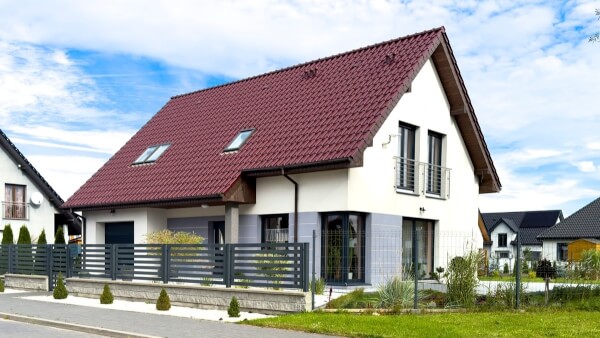
How much does it cost to build a house in Poland as a UK expat? Find out in our essential guide, covering everything you need to know.
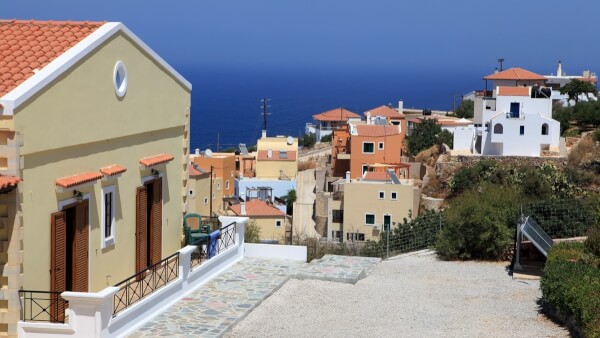
How much does it cost to build a house in Greece as a UK expat? Find out in our essential guide, covering everything you need to know.

Read our comprehensive guide to buying a house abroad, including how to arrange finance for overseas property purchases.

Read our roundup of 8 of the best places to buy land in the world as a Brit, looking at average land prices, buyer’s costs and more.

Read our guide to selling property in India and bringing money to the UK, covering taxes, transfer methods and other essential information.

Read our essential guide to investing in US farmland from the UK, including rules on foreign land ownership, average prices per acre, and much more.